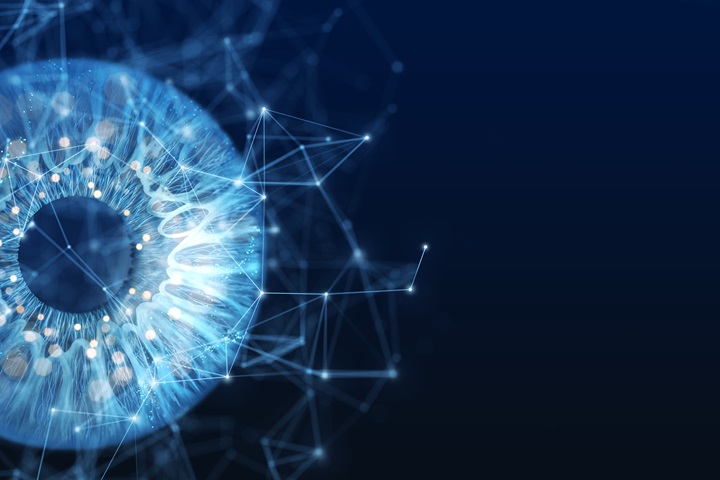In a world where AI has swiftly become integral to our daily lives, a striking contradiction has emerged. People have adopted AI faster than almost any innovation in history, yet they’re also terrified of it. They want brands to use it to improve almost everything, but fear what will happen when they do.
We call this contradiction the AI trust paradox – the conflict between people’s optimistic embrace of AI, and their doubts about whether they can trust it.
This is the finding of our study exploring changing attitudes and behaviors towards AI among the general population in the United States, developed in partnership with MMA.
Brands cannot simply avoid this paradox; to do so is to ignore the reality of how consumers behave. But how can they understand it, and navigate it successfully?
AI natives rising
First, we must dispel any notion that consumer use of AI is a future behavior we can address later. Hype has turned into quotidian reality. Our study found that more than half of consumers aged 18 to 70 use AI at least a few times a week – and nearly a quarter use it every day.
Frequency of AI tool use %
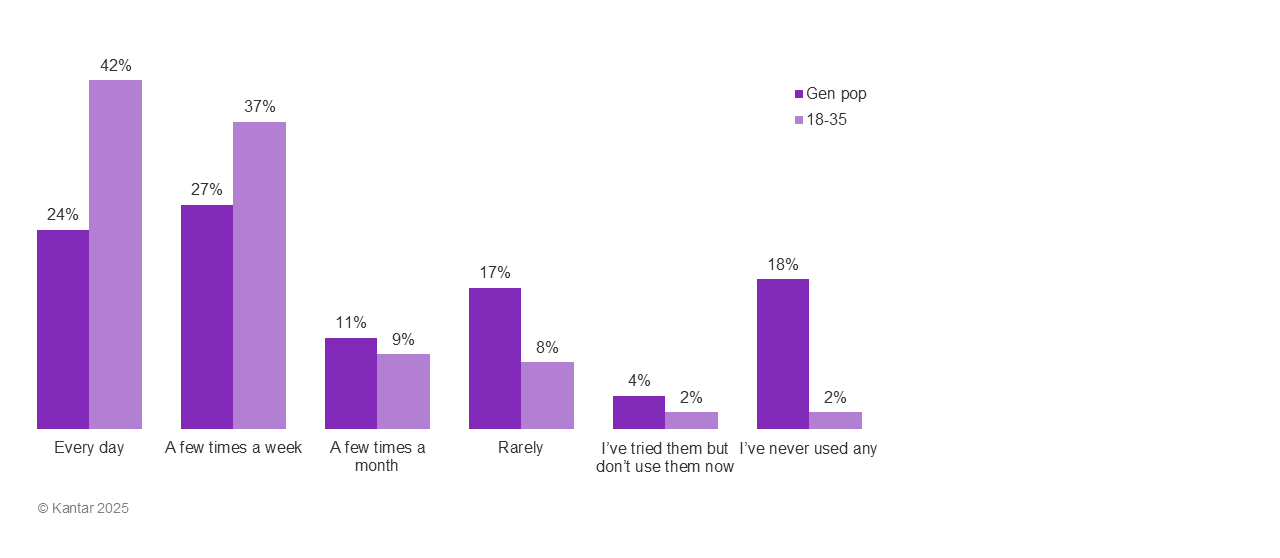
That represents an astonishing and unprecedented scaling of a new behavior. And for younger people, AI is transformative and almost universal.
To what extent are AI tools integrated to your daily life?
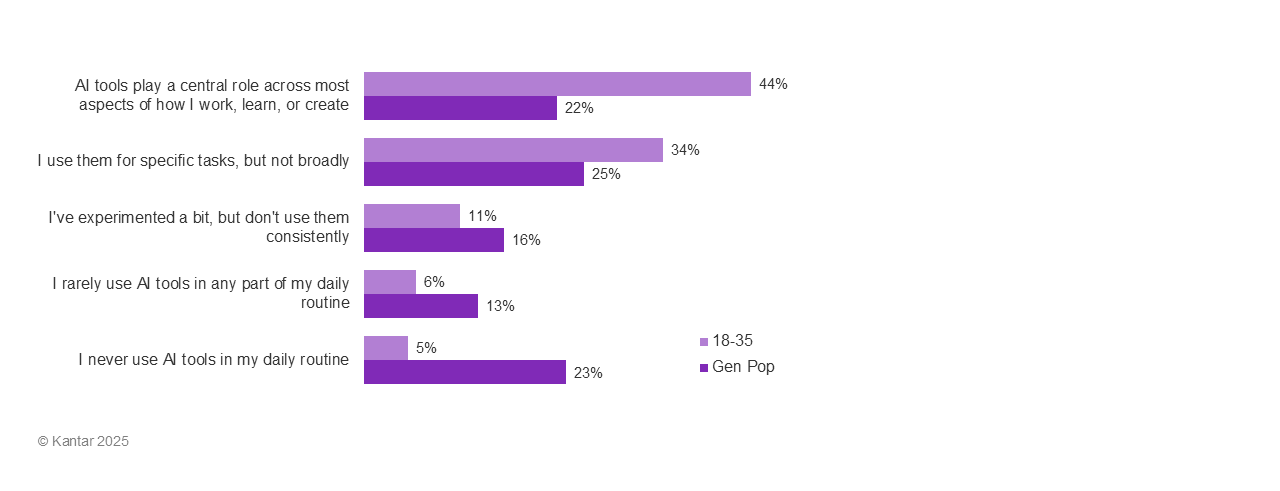
This emerging generation is not just digitally native, but AI native. These are consumers who expect intelligent, conversational interactions at every touchpoint, and for whom a level of personalization that would once have required a 24/7 personal concierge is now a baseline expectation.
How the trust paradox shapes expectations
People are clearly open to AI in their lives. And they have lofty expectations from businesses, paired with some reservations.
Overwhelmingly, people expect companies to use AI to improve what they offer. Four in five (81%) see at least some meaningful benefits from AI in company products and services, rising to 95% among younger consumers. And people think companies should use AI for faster and smarter customer service, lower costs or better deals, proactive problem solving, and help making better decisions.
The expectation is that businesses use AI to improve their products and services
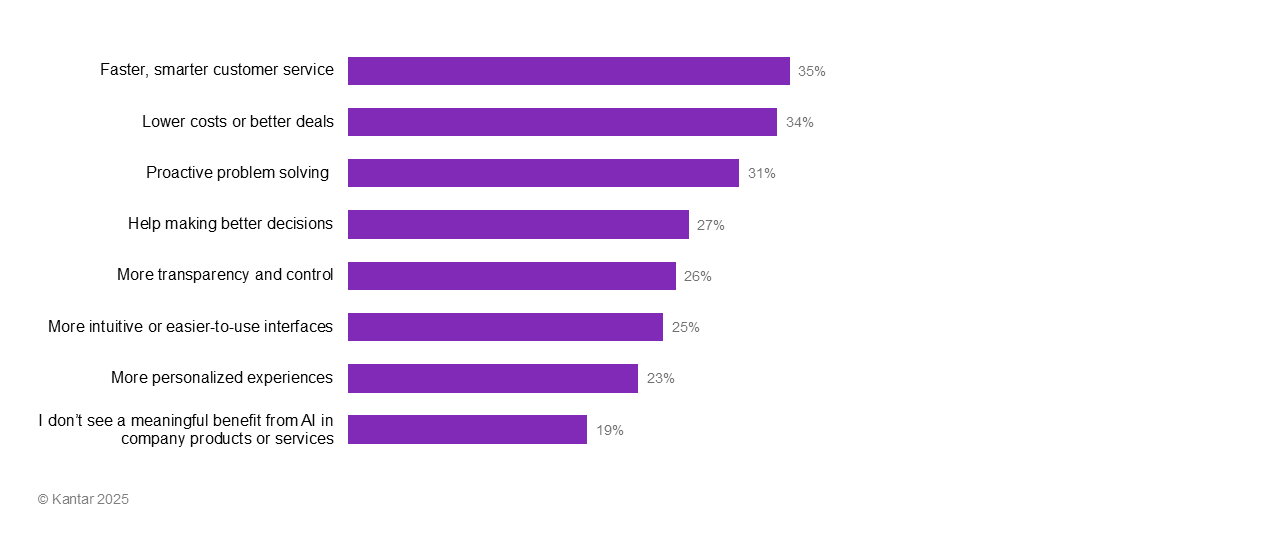
However, consumers think that the ends of AI innovation, such as lower costs and smarter services, cannot be separated from the means companies pursue to achieve them. While the appetite for AI-powered benefits is strong, it is matched by an equally strong insistence on ethical guardrails. People want companies to respect their data and privacy, to be transparent about where and how AI is being used, to ensure AI doesn’t replace human interaction where it matters, and to avoid using AI in ways that feel manipulative or deceptive.
What do you expect from companies when they use AI in their products or services
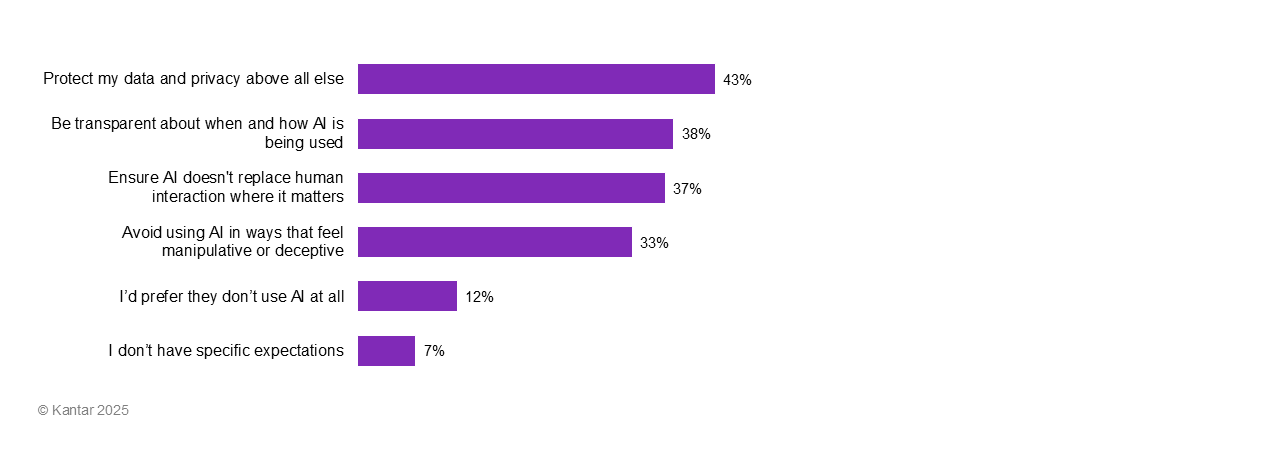
Our trust in the future
Trust can be looked at two ways. Do I trust AI now, in the moment I’m using it? And do I trust that it will have a positive impact in the future, both on my life and at a societal level?
Beyond today’s business concerns, we tapped into some of the wilder predictions about AI, drawing on speculative scenarios that are now widely discussed everywhere from the media to science fiction.
Among younger people we found overwhelming positivity about how AI will impact their lives – 85% expect to see a positive impact. Given how much we’ve heard about AI’s downsides, from misinformation to fears that it could eliminate entry-level roles and make it harder for young people to climb the career ladder, that’s a little surprising.
In fact, when we asked about potential extreme future scenarios, younger people’s optimism at first seemed unbounded. Three quarters (73%) said AI could solve problems humans have failed to solve; similar numbers think it might unlock human creativity like never before (71%) and make life easier and more fulfilling for everyone (70%).
But they also think AI could bring about massive disruption, echoing extreme warnings from the fringes of the AI safety community. Around two thirds said AI would be used to manipulate people at an unprecedented scale, replace both blue-collar and white-collar jobs, and lead to mass unemployment and collapse of the middle class.
Most alarmingly, more than half agreed with the ultimate dire prediction: that AI would eventually destroy humanity.
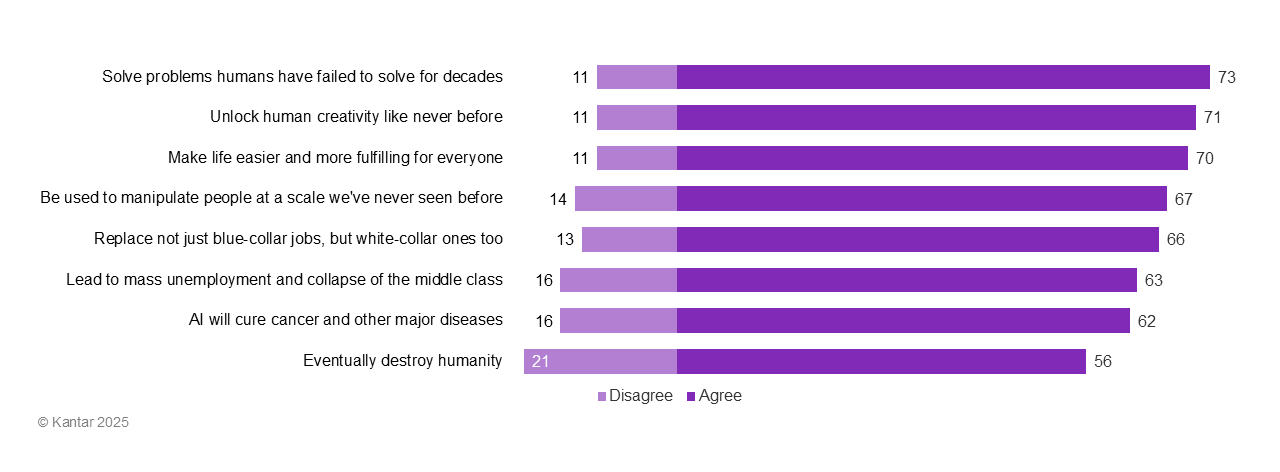
Consumer psychology and the trust paradox
How can we make sense of this total contradiction?
One way is to frame it as an optimism bias – that even if people believe AI might be bad for society, they don’t think they’ll be personally affected. It’s the same as how most believe they are above-average drivers, or have misplaced faith that they’re likely to beat the market with their investments.
Another way to explain the paradox is psychological distance. For most people, the threat of societal disruption from AI is a distant cloud, while the convenience of an AI assistant is the clear sky directly overhead. Think about how many people are concerned about how climate change will impact their long-term futures, while still eagerly accruing reward points with their favorite airline.
For business leaders, the point is that every alarming statistic about fears and concerns around AI should be tempered with the fact that people are optimistic about AI in general.
And while the data on young people speaks loudest, the point applies to all consumers surveyed. Even for respondents aged 50 to 70, who were less excited about AI, 36% think they will benefit, 46% are not sure, and only a minority of 18% expect AI to have a negative impact on them personally.
How do you feel AI will impact you personally over the next few years
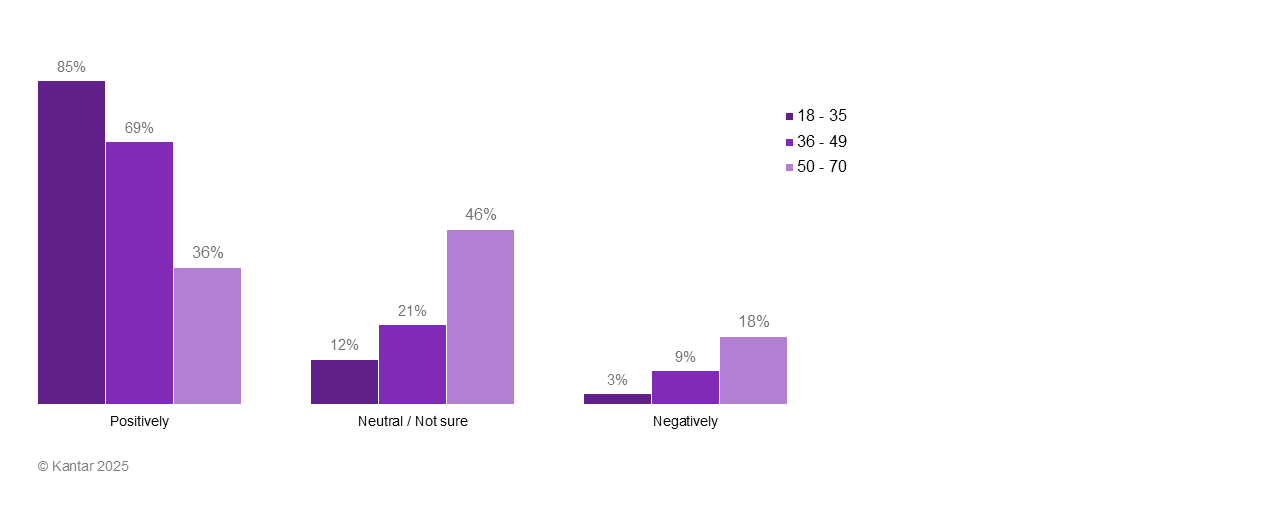
A dual strategy for brands navigating the paradox
Meeting consumer expectations isn’t enough for brands trying to navigate the AI Trust Paradox. They have to actively shape them instead.
This demands a two-pronged approach.
First, brands need to maximise the personal win. How can you use AI to create undeniably positive experiences that help people become better versions of themselves? Leaders who can show the clear personal benefits of using AI will create new positive associations between AI and their brands, leveraging people’s innate bias toward optimism.
Second, there’s a reward for aggressively mitigating the societal fear. Personal excitement about AI exists alongside broad cultural anxiety. People worry about manipulation, surveillance, job loss, and even existential risk. And while these fears are often abstract, a single bad interaction can make them real.
That’s why brands must proactively install trust infrastructure that consumers can see, moving beyond vague commitments to visible, credible, and concrete actions.
Ultimately, trust is not something a brand has – it’s something a brand earns, over and over again. Every AI interaction is a test: did this help me or manipulate me? Did it make me feel understood, or just observed?
By delivering undeniable personal benefit and pairing it with public, verifiable commitments to ethical AI, brands can do more than resolve the trust paradox – they can lead through it.


